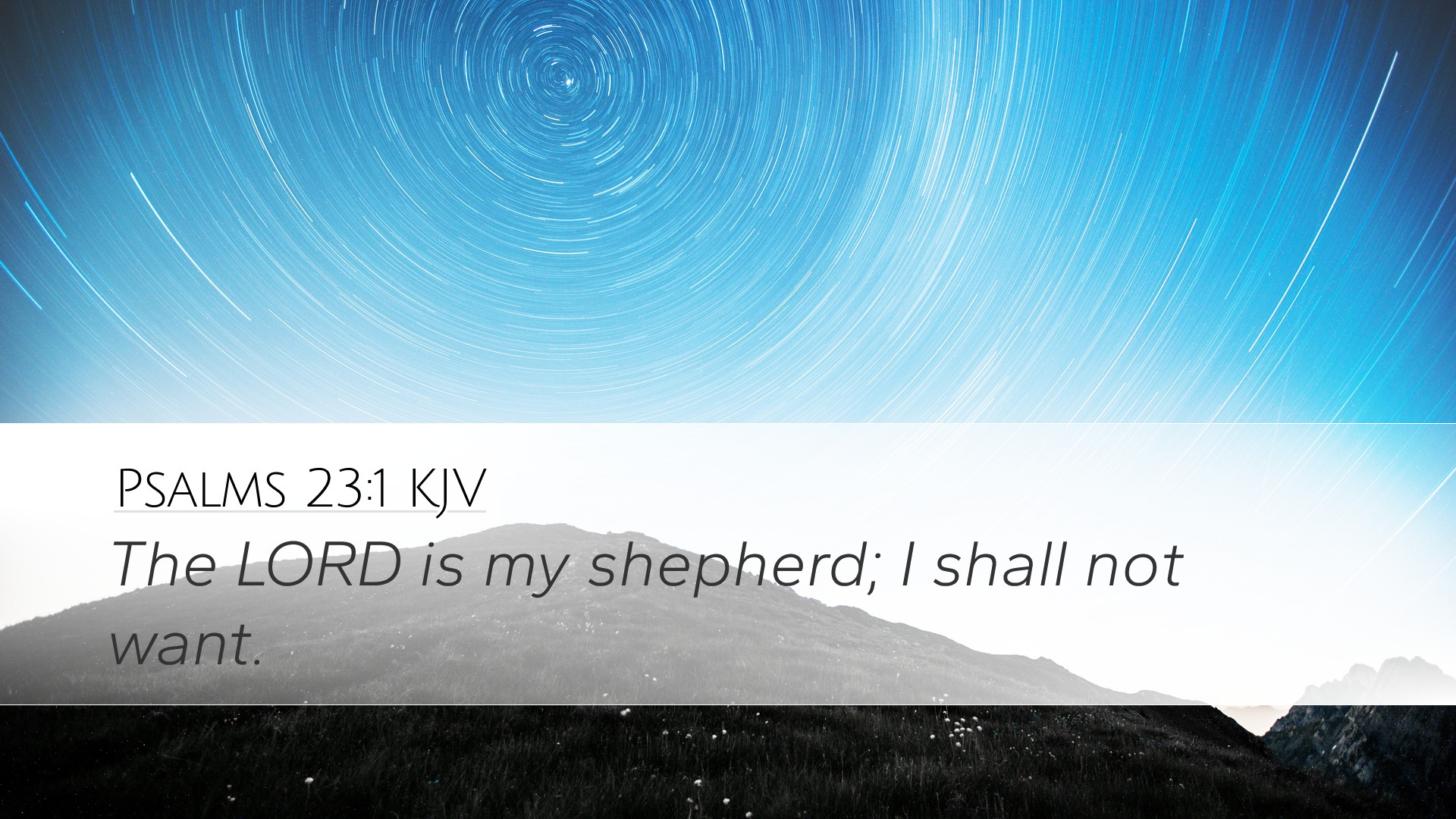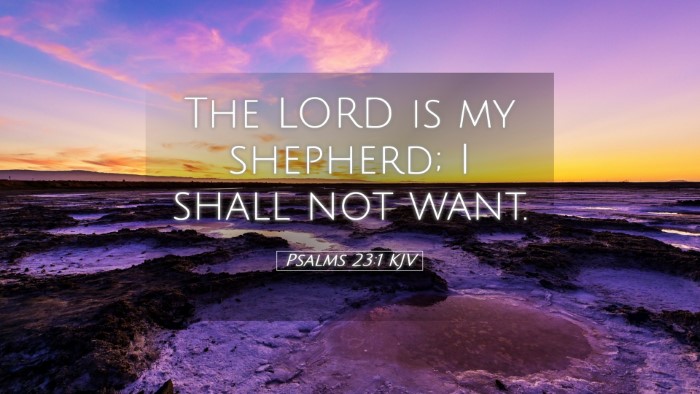Psalms 23:1 - A Commentary on the Lord as Our Shepherd
The verse "The Lord is my shepherd; I shall not want" (Psalm 23:1) is one of the most cherished and frequently cited in the Scripture. It encapsulates a profound truth about God’s role as a provider, protector, and guide in the life of the believer. This commentary synthesizes insights from notable public domain theologians such as Matthew Henry, Albert Barnes, and Adam Clarke, offering a rich and layered understanding of this verse for pastors, students, theologians, and Bible scholars.
1. The Nature of God as Shepherd
Matthew Henry emphasizes the personal relationship inherent in the phrase "my shepherd." This possessive quality suggests an intimate and caring bond between the believer and the Lord. The role of the shepherd is crucial in biblical imagery. A shepherd not only leads but also protects, nurtures, and provides for the flock. In the ancient Near Eastern context, the shepherd was synonymous with care, guidance, and authority.
Albert Barnes further elaborates on this by noting that "shepherd" implies guidance and watchfulness. The shepherd is responsible for the well-being of each individual sheep, ensuring they are safe, fed, and free from harm. This metaphor reveals God's character—He is personal, attentive, and involved in the details of our lives.
2. The Lack of Want
The phrase "I shall not want" resonates with assurance and contentment. The believer, knowing the Lord as their shepherd, can confidently assert that all their needs will be met. Adam Clarke notes that this promise encompasses both spiritual and physical needs, affirming that God will provide nourishment, protection, and support.
This assurance rests on the character of God, who is inherently good and generous. Henry points out that the believer's satisfaction is contingent upon the shepherd's ability and willingness to provide. When one trusts in the Lord, they can experience peace, knowing that they lack nothing essential.
3. The Context of the Psalm
To fully grasp the depth of this verse, it is essential to consider the broader context of Psalm 23. This psalm, attributed to David, reflects a heart that has experienced both trials and triumphs. He speaks from a position of both authority as king and vulnerability as a man of God. David’s experiences underline the multifaceted relationship with God, where the Shepherd sustains during life's adversities.
Barnes points out that David's declaration invites believers into a confidence that transcends circumstances. The shepherd's vigilance ensures that even in dark valleys, there is reassurance and solace. Thus, "I shall not want" becomes a declaration of trust amid uncertainty.
4. Application in Life
For pastors and spiritual leaders, Psalm 23:1 serves as an essential reminder of their calling to be shepherds of their congregations. They are to reflect the qualities of the Good Shepherd, guiding, protecting, and nurturing their flock. This task requires not only teaching but also a genuine care for the spiritual and physical needs of the community.
The message of this verse generates hope for students and believers alike. It urges individuals to cultivate a trust in God's provision amid personal challenges. The security found in the Good Shepherd invites them to seek deeper fellowship with Him, understanding that their needs—emotional, spiritual, and physical—are met in His presence.
5. Theological Implications
Theologically, Psalm 23:1 invites discussions about God’s providence and the nature of His kingdom. The Lord as shepherd emphasizes His active role in governance and care for creation. Clarke asserts that this underscores God's sovereignty and meticulous providence, suggesting that every aspect of life falls under His divine oversight.
Moreover, this verse aligns with the New Testament revelation of Christ as the Good Shepherd (John 10:11). The continuity of this imagery from the Old to the New Testament highlights the consistency of God's character in seeking, saving, and sustaining His people throughout biblical narrative.
Conclusion
Psalm 23:1, "The Lord is my shepherd; I shall not want," is a rich source of comfort and assurance for believers. The insights from public domain commentaries collectively emphasize trust and reliance on God’s provision, care, and guidance. As pastors, students, theologians, and scholars delve into this verse, they uncover layers of meaning that continue to encourage and challenge the faithful to live in the light of God’s shepherding love.


